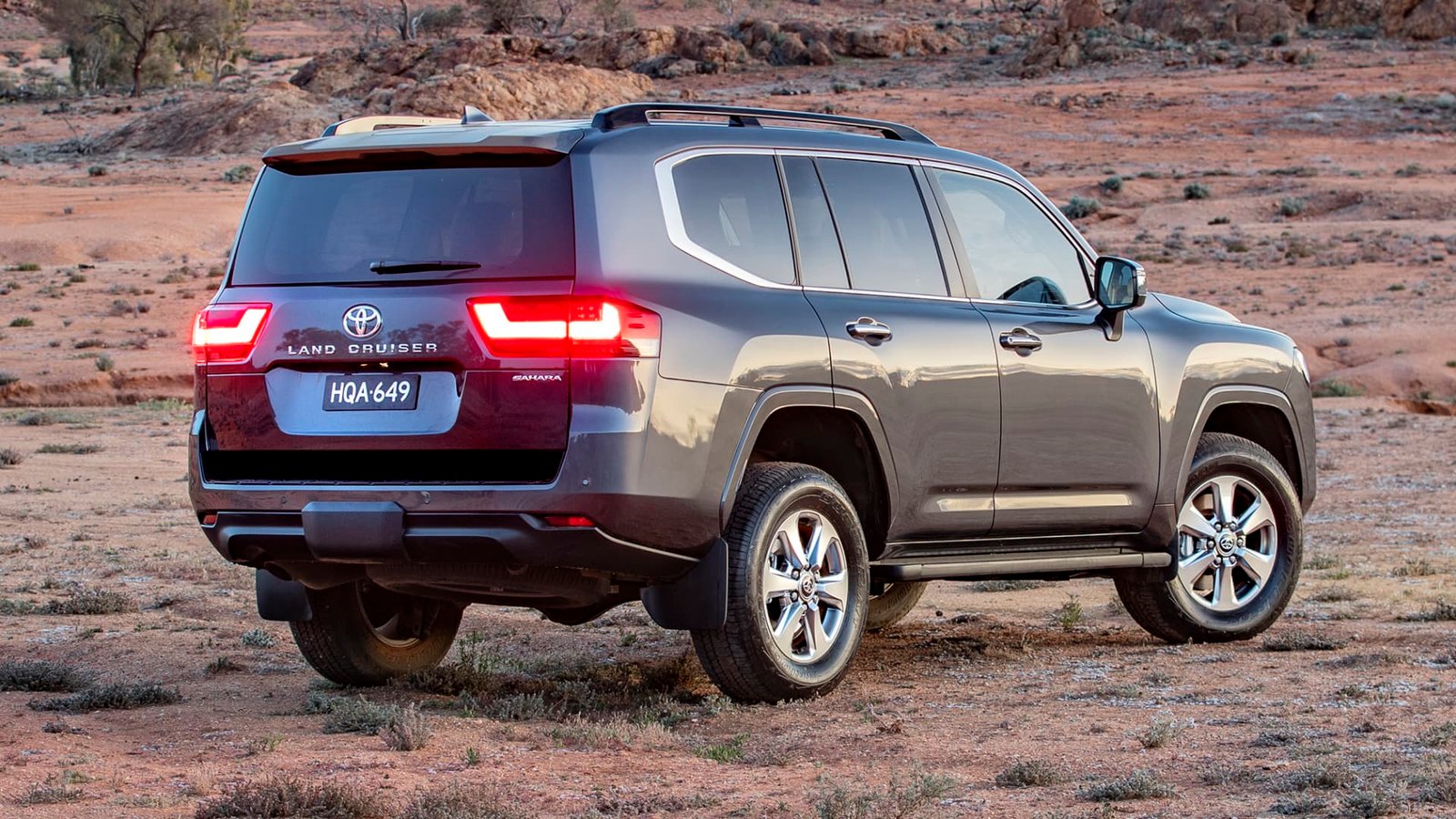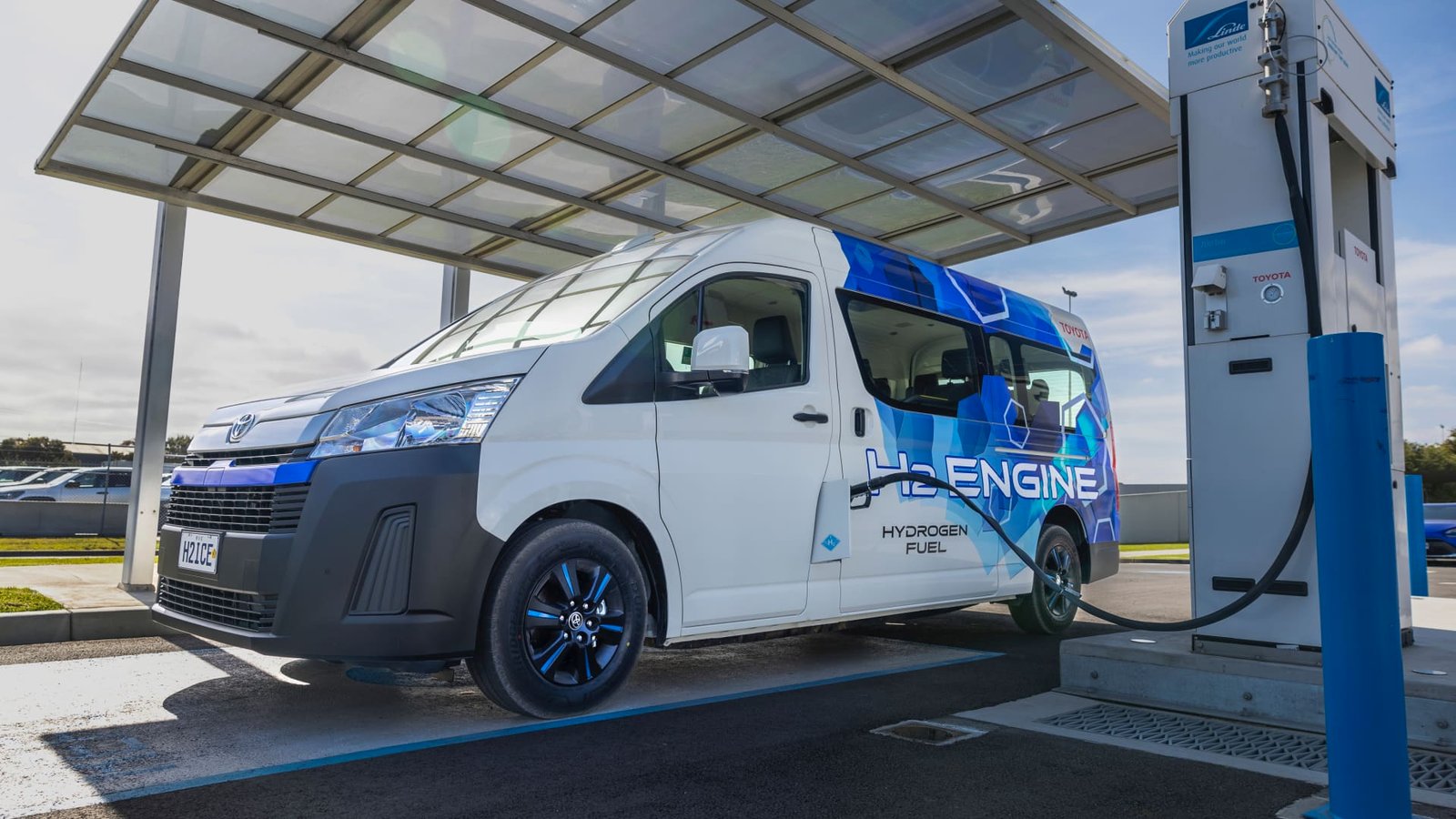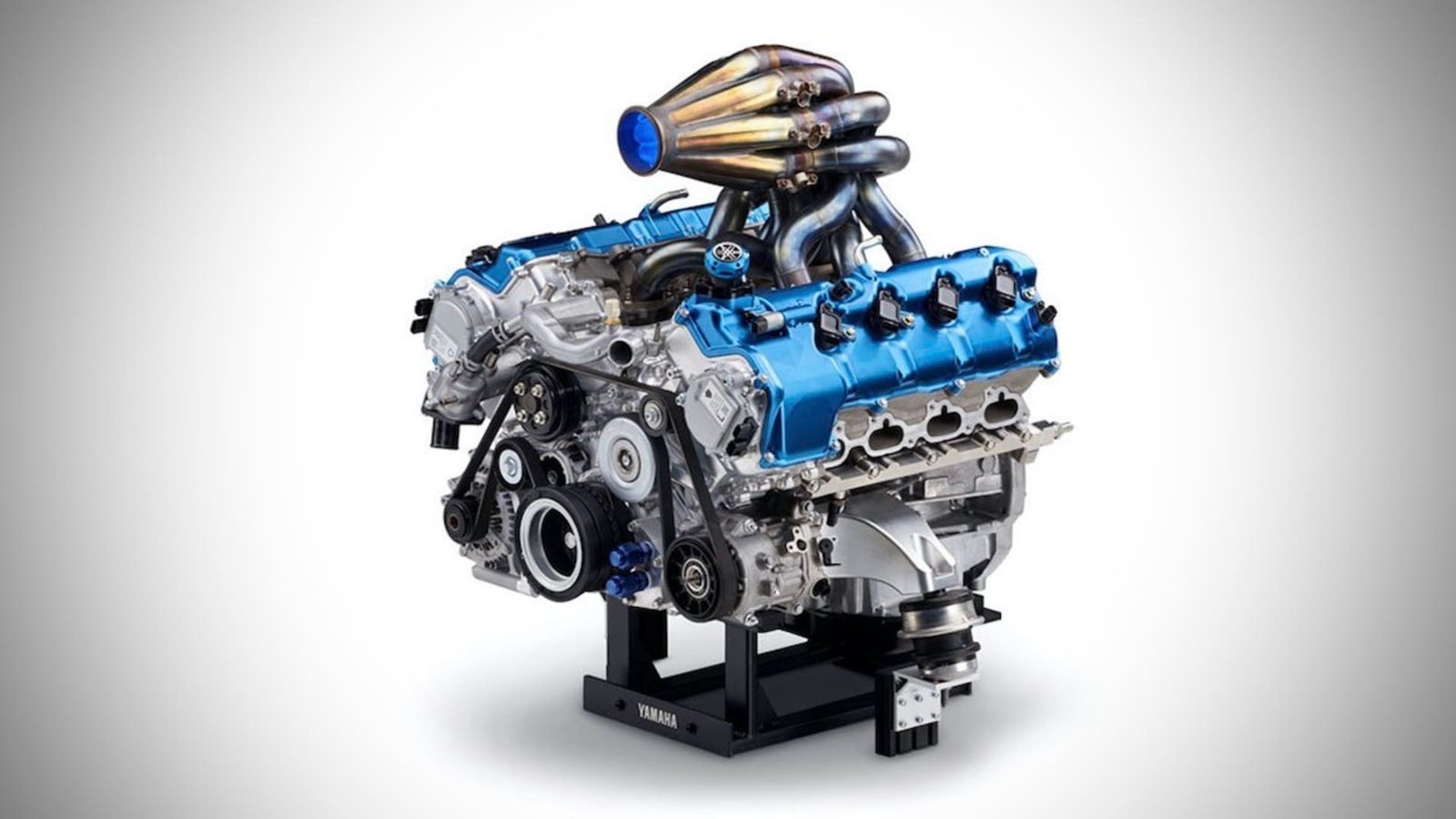[bsa_pro_ad_space id=14]
Toyota says it is looking at hydrogen propulsion for the LandCruiser, but it’s not clear whether it will be with a twin-turbo V6, a V8, or fuel-cell electric technology.
A Toyota LandCruiser powered by hydrogen could be on the horizon, according to a senior executive from the company.
Speaking to media at the unveiling of the hydrogen HiAce, Toyota’s hydrogen factory President Mitsumasa Yamagata said the alternative fuel lends itself to vehicles such as the LandCruiser which are used to tow and carry heavy loads.
“There are possibilities to adapt [hydrogen-fuelled engines] into those big vehicles, including LandCruiser,” Mr Yamagata explained through a translator.
“This advantage of the technology can be utilised for those vehicles including [those that are used for heavy] towing and [heavy] loading.
The hydrogen HiAce prototype is powered by a 3.5-litre twin-turbo V6 – an engine found in the Lexus LX600 and overseas versions of the LandCruiser 300 Series, normally fuelled with unleaded petrol – but detuned from 305kW/650Nm to 120kW/354Nm.
Unconfirmed reports out of Japan in February 2022 suggested Toyota could instead use a hydrogen-fuelled 5.0-litre naturally-aspirated V8 – adapted from the Lexus RC F and LC500 sports cars – developed in partnership with Yamaha to produce 335kW and 540Nm.
However, Mr Yamagata added that hydrogen fuel-cell technology – the same which is found in the Toyota Mirai sedan – had not been ruled out.
“Including the introduction of [hydrogen fuel-cell electric vehicles], we are studying which vehicle [will] have [which] suitable technology.”
Toyota Australia President and CEO Matthew Callachor downplayed the idea slightly, saying hydrogen fuel-cell technology was “another huge stake in its own right,” before conceding it was “one of the possibilities, but it obviously requires significant engineering as well”.
The discussion suggested a hydrogen version of the LandCruiser – either with an internal-combustion engine or as a fuel-cell vehicle – was part of the company’s future plans, though it wasn’t clear whether this was for the 70 Series light commercial model, the 300 Series off-road family SUV, or both.
Toyota engineers said the hydrogen-fuelled HiAce only took 12 months to develop – a short timeline for a working prototype – with the 3.5-litre turbocharged V6 only needing new fuel injectors, and the van itself borrowing hydrogen fuel tanks from the Mirai.
But while the HiAce has a tank capacity of 141 litres of hydrogen, the company said the prototype has a range of “less than” 200 kilometres – equating to a fuel consumption rate of more than 70 litres per 100 kilometres.
Engineers say they are hopeful of improving the range by adding larger hydrogen fuel tanks and adding hybrid technology, with the latter likely adapted from the Toyota Tundra pick-up.
[bsa_pro_ad_space id=15]




